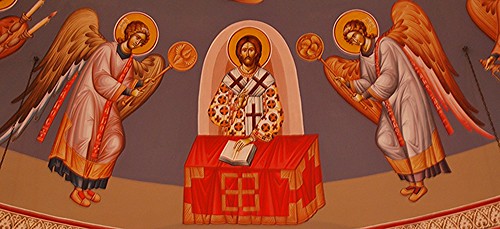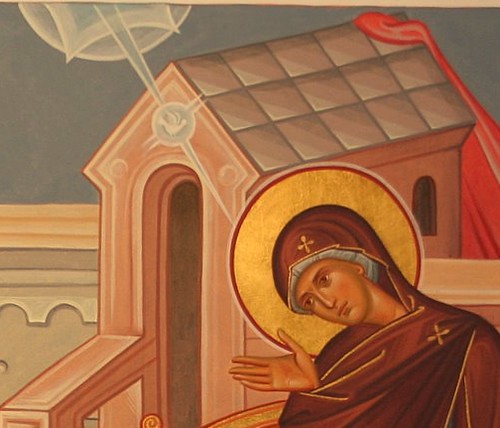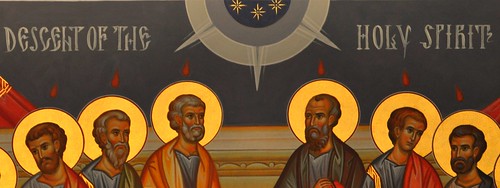“The Eucharist requires the memorial (or anamnesis) of the whole history of salvation. This is epitomized in its central point, the life-giving cross, the cross of Easter. These events which are written in the ‘memory’ of God are made present, actual and active by the ‘memory’ of the Church.
In this living ‘memorial’ the priest is the image of Christ, an ‘other Christ’, as St John Chrysostom says. He bears witness to Christ’s unshakeable fidelity to his Church. Through the one who sums up the people’s prayer and constitutes for them the sign of Christ, Christ our one high priest accomplishes the Eucharist. And everything is done in the Holy Spirit.
It is in the Holy Spirit that the Church is the ‘mystery’ of the Risen Christ, the world in process of transfiguration. The Spirit ‘broods’ on the waters at the beginning and ‘hovers’ over them like a great bird. In order to make the human being live, God breathes his Spirit into the clay. The Spirit comes down on the Blessed Virgin in order that the Word may take flesh in her.
He rests on Jesus as his Messianic anointing and it is in him that Jesus thrills with joy and multiples the ‘signs’ of the Kingdom. It is by the life-giving power of the Spirit that God raises Jesus (Romans 1:4). Likewise when the people are assembled to offer themselves in the offertory of the bread and wine, the Spirit comes upon them to ‘manifest’ the body and blood of Christ through the bread and wine (the word ‘manifest’ is found in the Eucharistic liturgy of St Basil). The Spirit thereby integrates the people in the glorified humanity of the Lord. So the memorial is effected by the coming of the Spirit in response to the Church’s epiclesis (a word that means ‘invocation’).
All the faithful ratify this invocation by their amens. In this respect they are concelebrants of the liturgy. But only the apostolic witness of the bishop (or of the priest representing him) can testify to the epiclesis being heard, to the fullness of God’s faithfulness.” (Oliver Clement, The Roots of Christian Mysticism, pp 111-112)




